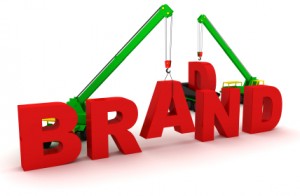
Customers want you to prove that what you’re offering will solve their problem better, faster, easier, more effectively, and more economically than all the other options out there. You can package your product beautifully. You can grab the customer’s attention, and build relationships among your clients. You can offer superior customer service.
But if you stumble on the issue of proof, you can still lose the sale.
If you’re not providing proof that your claims are true, you may be washing precious marketing dollars down the drain. It’s as simple as this: your claims must be believable to the customer if they’re going to buy from you.
Here are some ways to help you showcase proof points in your marketing efforts:
- Statistics. There’s nothing more concrete than mathematics. Numbers have clout with consumers, making statistics a great way to show off your proof points. Consumers are especially keen on the use of percentages that stand out. Example: Lysol: Kills 99.9% of bacteria!
- Credentials. Your customer wants to believe that you are the absolute authority in your industry or area. They want to believe that you “know your stuff” when it comes to your product or service. You can help build trust and thereby solidify your proof by offering things like biographies or executive profiles on your company website. Let’s say you’re a local CPA offering bookkeeping and tax services to the community. You’ll want your potential customer to know everything that makes you qualified to do what you do: years of schooling, your accreditations, any associations or clubs you belong to (related to the industry or community), awards you’ve won, and so on. Include anything and everything that makes you stand out from the other CPAs in town.
- Surveys. We’re all familiar with such memorable advertising lines as “2 out of 3 dentists recommend Crest.” And who can forget the decades-long cola wars where “3 out of 4 taste-testers” choose one popular cola over the other? Consumers trust surveys because they tend to regard them as a scientific method of proof.
- 3rd Party Proof. If you can link your product to a specific accreditation or certification by a respected organization, then you’re one step ahead of most when proving your product. The Good Housekeeping Seal of Approval is one example of this strategy. Better Business Bureau membership is another. Yet another coveted form of respect would be having your product or service positively rated and recognized in Consumer Reports. On a smaller, more local scale – has your product or service ever been featured in local news, either print or television? Won any local awards from third party contests? If so, then make sure your customers know about it!
- Case Studies. A case study is simply a story about how your product or service solved a problem. Case studies are most often used in business-to-business and technical applications. They can be as short as three paragraphs, or run for pages. Think of them as “show,” not “tell.” Customers are reassured by real-life stories about problem solving using particular products.
- Visual Proof. Offering charts, diagrams, tables and illustrations of any kind are another good way to showcase your proof points in your marketing. Because so many people are visual learners, the additional use of graphics will help bolster your written or spoken claims.
- Bragging Rights. This category is wide and broad. Think about those lesser-known things that make you or your product special; the number of years in business or number of units sold resonate well with the consumer. How many countries do you do business in? “As Seen on TV” is also a popular bragging right you can potentially use in your marketing (if your product has been on television, of course).
- Testimonials. A testimonial is nothing more than written (or video) praise from satisfied customers. You can’t have too many testimonials, and we’ll explore testimonials in depth next time.
- Celebrity Endorsements. Chuck Norris and the BowFlex®. Catherine Zeta-Jones and T-Mobile. William Shatner and Priceline.com. Kirstie Alley and Pier One. Companies hire celebrities to endorse their products because it works. If consumers like a particular celebrity, they take the endorsement as proof of a good product. You may not be able to afford Chuck Norris, but if you’re a local business you may be able to find home-grown locals who have their own sort of local celebrity status.
In today’s economy, it takes more proof than ever to close a sale. So don’t be stingy with it. Use as many types of proof as fit your product and marketing strategy. Next time, we’ll talk about one of the most essential types of proof of all: testimonials.